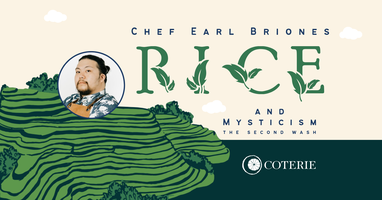- Taste Traditions by Chef Earl Briones
- Posts
- Celebrating Filipino Food Month: Honouring Tradition, Embracing Innovation
Celebrating Filipino Food Month: Honouring Tradition, Embracing Innovation
Exploring the Past, Elevating the Present: A Journey Through Filipino Cuisine
April is Filipino Food Month, a time dedicated to celebrating the rich and diverse culinary heritage of the Philippines. Established to recognize and preserve the country’s food traditions, Filipino Food Month highlights the vital role that Filipino cuisine plays in cultural identity, national pride, and food sovereignty. It’s an opportunity to honour the farmers, producers, and culinary artisans who continue to bring these flavours to life, ensuring that our foodways remain vibrant and relevant for generations to come.
For many, Filipino food is a taste of home—a bowl of steaming sinigang on a rainy day, the perfect crisp of lechon skin, or the sweet, sticky indulgence of bibingka. But beyond nostalgia, Filipino cuisine is a dynamic and evolving force, shaped by centuries of trade, colonization, and innovation. It carries the influences of Malay, Chinese, Spanish, and American traditions, all woven together with distinctly Filipino ingenuity and soul.
As we celebrate Filipino Food Month, we also acknowledge the importance of preserving our food heritage while embracing new interpretations. Filipino cuisine is finding its voice on the global stage, with chefs and home cooks alike reimagining traditional dishes through contemporary techniques and local ingredients. This balance between tradition and innovation is what makes Filipino food so exciting—it’s a cuisine that tells a story with every bite. |  |
For me, Filipino Food Month is deeply personal. It’s not just about honouring our history, but about reconnecting with my own heritage through food. My journey with pre-colonial Filipino cuisine has been one of research, experimentation, and storytelling. Through my Rice & Mysticism dinner series, I’ve had the privilege of bringing ancestral flavours back to the table, reviving ancient cooking methods and lost ingredients that shaped the foundations of Filipino cuisine.
This year, I’m more excited than ever to present Rice & Mysticism: The Second Wash. With two more years of research and hands-on experimentation, I’ve had the time to refine my approach, deepen my understanding, and explore even more pre-colonial recipes. I’ve pushed myself to not just replicate the past, but to create an experience that truly honours it—melding history, flavour, and modern technique in a way that respects tradition while offering something fresh and immersive.
As part of this ongoing exploration, I’m also thrilled to share that my thesis project and presentation on pre-colonial Filipino foodways is being reviewed at KainCon this year. KainCon is a premier culinary conference that brings together chefs, researchers, and cultural advocates to explore the intersections of Filipino food, history, and identity. My presentation, titled Beyond Ingredients: The Language of Filipino Gastronomy & Cultural Identity, examines how food serves as a living archive of memory and resistance. Having this work recognized in such a meaningful space is an incredible honour, and a testament to the power of food as both scholarship and storytelling.

Filipino Food Month is a time for reflection, celebration, and growth. It’s a reminder that food is more than sustenance—it’s identity, connection, and history on a plate. I invite you to join me for this special dinner and embark on a journey through the origins of Filipino cuisine. Let’s celebrate our heritage together. Reserve your seat now and experience the evolution of Filipino food.

